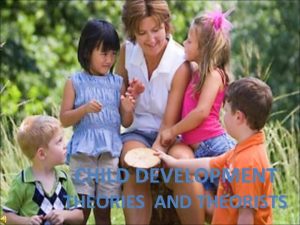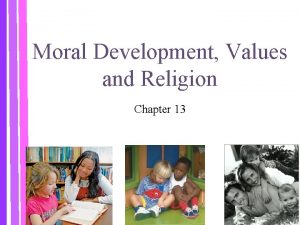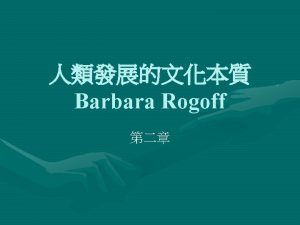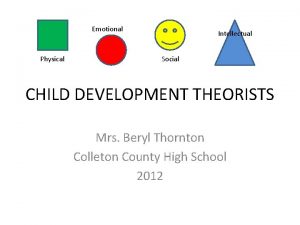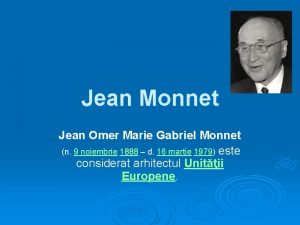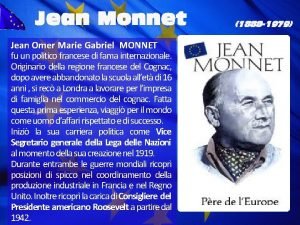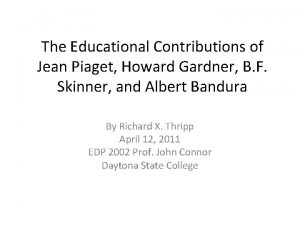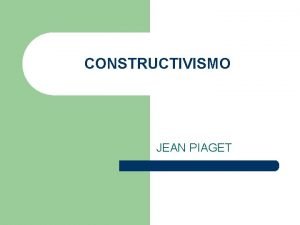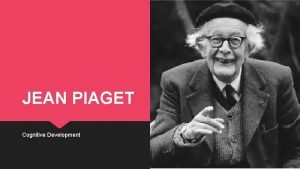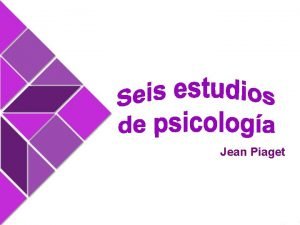Child development theorists Jean Piaget Piaget was a







- Slides: 7

Child development theorists

• Jean Piaget • Piaget was a French speaking Swiss theorist who posited that children learn through actively constructing knowledge through hands-on experience. He suggested that the adult's role in helping the child learn was to provide appropriate materials for the child to interact and construct. • He would use Socratic questioning to get the children to reflect on what they were doing. He would try to get them to see contradictions in their explanations. He also developed stages of development.

• Sigmund Freud • The first stage is the oral stage exemplified by an infant's pleasure in nursing and where gratification of needs centers around feeding. • The second is the anal stage (toddlerhood), which revolves around interest in bodily functions and gratification of need by retaining or expelling faeces. • Third is the phallic stage which lasts for about three years and it is during this stage that the oedipal conflict arises wherein a boys desires for his mother are in conflict with his fear of castration by the rival father. • Freud argued that children pass through a stage in which they fixate on the mother as a sexual object (known as the Oedipus Complex) but that the child eventually overcomes and represses this desire because of its taboo nature. • Freud's attempts to formulate a comparable process for girls fixating on fathers, the lesser known Electra Complex, was less successful. • The fourth stage is the repressive or dormant latency stage of psychosexual development. This is followed by a genital stage during which the properly developing human should mature from pleasure seeking infant into the sexually mature, genital stage of psychosexual development.

• Erikson • Theorist Erikson also proposed a stage theory of development, but his theory encompassed development throughout the human lifespan. • Erikson believed that each stage of development is focused on overcoming a conflict. Success or failure in dealing with conflicts can impact overall functioning.

• Confucius, a Chinese teacher and educator, believed that moral principles, virtues and discipline should be the very first lessons taught to a child, and that children need to practice them daily.

• Lev Vygotsky • He believed children learn through hands-on experience, as Piaget suggested. However, unlike Piaget, he claimed that timely and sensitive intervention by adults when a child is on the edge of learning a new task. . . called the Zone of Proximal Development. . . could help children learn to do new tasks. • This technique is called "scaffolding" because it builds upon knowledge children already have with new knowledge that adults can help the child learn. An example of this might be when a parent "helps" an infant clap or roll his hands to the Pat-a-Cake rhyme, until he can clap and roll his hands himself.

